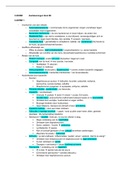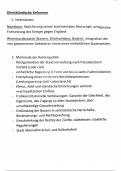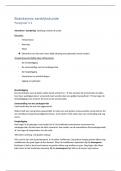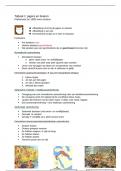Introduction:
“teaching a dog a new trick”: intended to be humorous reflections of adults’
reference to temporary memory loss or inability to learn.
Cognitive skills: ability to learn, remember, solve problems, and be
knowledgeable about the world.
Are not only important in managing everyday life but also important in terms of
the way people view themselves.
Basic Cognitive Functions: Information Processing and Memory:
The computer is used as an analogy to explain how information processing
tasks such as remembering and decision-making are carried out.
- The information (data) is entered into the brain through the various sensory
routes where it is encoded and interpreted.
- The brain then stores the information in memory for further use immediately.
Attention: needed to process information.
- Inability to focus attention can have serious consequences while lapse in
attention at a crucial moment of decision making can be disastrous.
Attention is often a fleeting cognitive state, it is a necessary first step to a
subsequent and more detailed analysis of incoming information.
FORMS:
1. Sustained attention: ability to concentrate on a task without being distracted.
-decline with age
- Complex task – negative impact older you get
2. Selective attention: required when a person must pay attention to some
information while ignoring other information.
- Perceptual noise: party next door
- Visual search
- Older struggle with ignoring info
- Decline in ability to suppress perceptual noise
3. Divided attention: required when the individual has to attend to and process
more than one source of information at the same time.
- Older people can’t do it as well
, Reduction in efficiency of attentional processes during the ageing process:
1. The reduced attentional resources model: amount of attentional capacity
declines with age.
- Could be related to the complexity of the task.
2. The inhibitory deficit model: ageing is associated with a decrease in the ability
to ignore irrelevant information of stimuli and to focus on relevant stimuli or
targets.
3. Neurological approach: a decline in frontal lobe functioning which is strongly
associated with executive functioning, such as planning and the selection of
important from distracting stimuli, may play a role.
INFORMATION PROCESSING SPEED
Information processing speed: refers to the amount of time it takes a
person to process a stimulus, prepare a response and then execute that
response.
Reaction time: a measure of how long it takes a person to respond to a
stimulus.
- Reaction times get slower as people get older.
- Slowing down in information processing also has an effect on general
intellectual functioning.
Theories:
1. General slowing hypothesis: states that slower reaction time reflects a decline
in the nervous system.
- Sensory processing: information may be brought more slowly into the nervous
system and this causes a delay in the ability to produce a response.
- Loss in speed of neural transmission: cause by loss of neurons, slowing of
synaptic communication, or a loss of information at each synaptic
transmission.
2. Age-complexity hypothesis: the complexity of a task affects how quickly people
respond.
- With simple tasks there is little difference between younger and older
people’s reaction times.
- As tasks increase in complexity the difference between younger and
older adult’s reaction times also increases.










